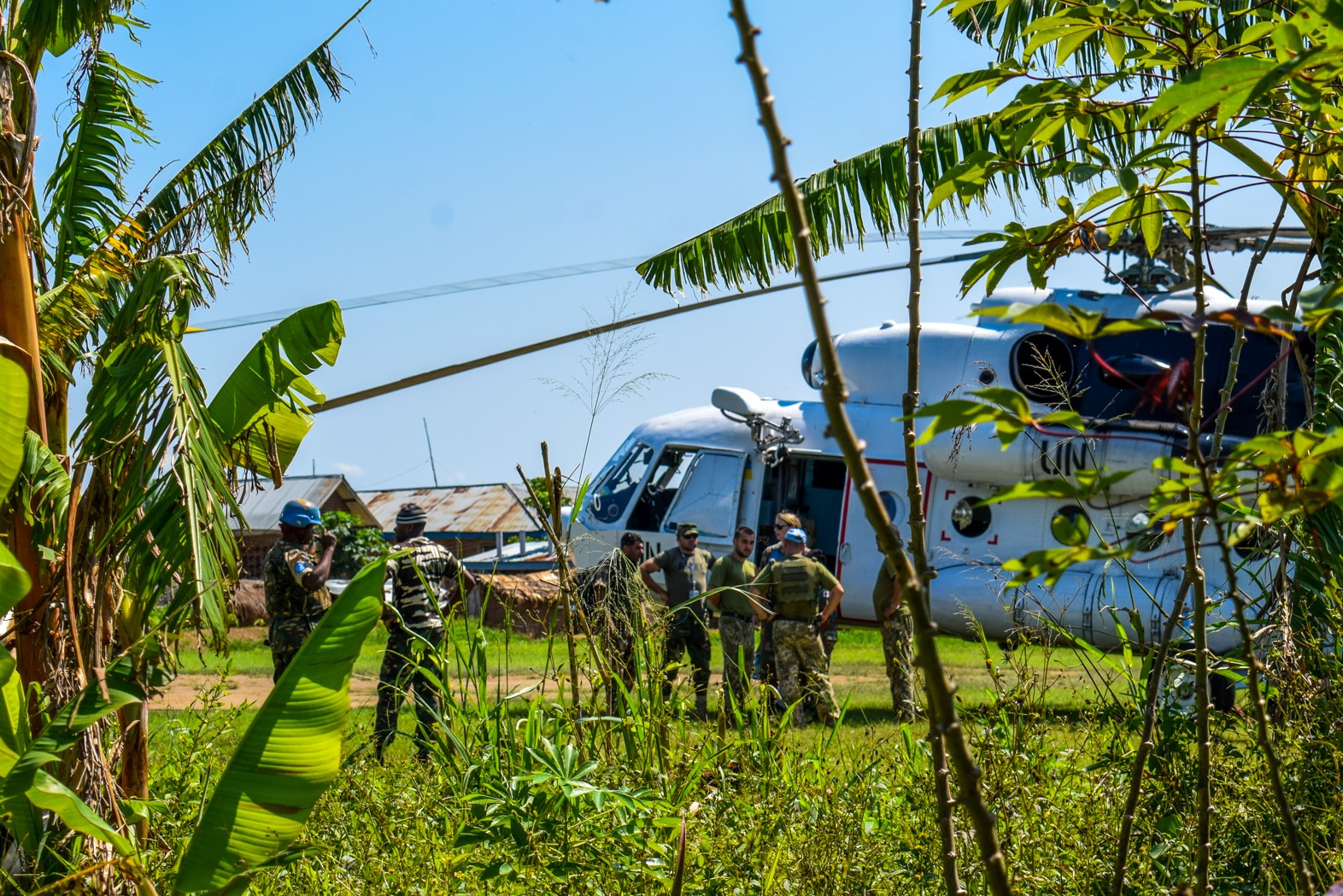Despite the ongoing hot war against Russian-backed forces in its own territory, Ukraine — an active peacekeeper since becoming independent in 1991 — is gradually increasing its involvement in peace-support action around the world.
In addition to the current operations, Ukraine now seeks to deploy its personnel to Iraq, the Mediterranean Sea, and Bosnia and Herzegovina, and also to reinforce its contingents in Kosovo, Mali, Afghanistan, and Cyprus.
As Colonel Valentyn Levchyk, an officer at the General Staff of Ukraine’s Armed Forces, told on July 9 during a briefing, the country’s national personnel is ready to join NATO’s mission in Iraq following a respective decree signed by Ukraine’s President Volodymyr Zelensky.
He added that in April, the North Atlantic Council, the alliance’s principal decision-making body, had recognized Ukraine as a potential operational partner for its non-combat, advisory and training mission for Iraqi national forces.
Earlier, Ukraine’s Deputy Defense Minister for European integration Lieutenant General Anatoliy Petrenko told the Kyiv Post at NATO headquarters in Brussels that the Ukrainian party had already “completed drafting documents that will enable us to join NATO mission in Iraq.”
Apart from that, according to Colonel Levchyk, Ukraine now prepares to send its national personnel to support the Operation Althea, a military-led stabilization deployment carried out by the European Union Force (EUFOR) in Bosnia and Herzegovina since 2004.
Also on the plate are the plans to join NATO-led observe and patrol mission Sea Guardian in the Mediterranean, he added.
Besides, by December 2019, the number of Ukrainian personnel in Kosovo operating as part of NATO-led KFOR peacekeeping force will be increased by 50. For the moment, Ukraine has 40 military engineers ensuring the freedom of movement, engineering works, and minesweeping activities for KFOR in Kosovo.
The reinforcements to the mission would be sent upon NATO’s request, Colonel Levchyk said.
In 2019, a national contingent of 5 personnel was also deployed to Mali as part of the United Nations-led stabilization mission to the African country embattled by the Tuareg rebellion in 2012-2013 and the subsequent rise of numerous Islamist fractions linked to the al-Qaeda and the Islamic State.
Initially, a decree on the Mali mission signed by former president Petro Poroshenko in early 2019 envisaged the deployment of up to 20 military personnel.
In general, as many as 351 military and 61 civilian personnel of Ukraine is currently participating in 9 peace support missions around the world, according to Colonel Levchyk.
So far, the biggest Ukrainian military contingent is deployed to the Democratic Republic of Congo in central Africa as part of UN peacekeeping mission. Ukraine’s 250-strong 18th Helicopter Detachment based in the cities of Beni and Goma in eastern Congo operates 8 helicopters Mikoyan Mi-24 and Mi-8, namely in terms of aerial reconnaissance and close air support for UN forces, as well as medical evacuation and transportation.

UN peacekeepers stand near a Ukrainian UN helicopter at an evacuation point near the village of Kamango in the Democratic Republic of Congo in May 2019. (Ukraine's Ministry of Defense)
Other than that, Ukrainian civilian and military personnel is involved in peace-support missions in South Sudan (4 persons), in the disputed Abyei area between North and South Sudan (6 persons), in Cyprus (1 person), in Afghanistan (21 persons as part of NATO-led advisory mission Resolve Support), and Transnistria (10 military observers).
Three Ukrainians deployed overseas are female military service persons: Two observers in the Democratic Republic of Congo and in Transnistria, and a headquarters officer in South Sudan.
In general, as many as 45,000 Ukrainian troops have participated in 27 various peacekeeping operation all around the world since 1992 under the aegis of NATO and UN. Geography of Ukraine’s involvement in extremely wide, covering former Yugoslavia, Angola, Sierra Leone, Sudan, Liberia, Ivory Coast, Lebanon, Tajikistan, Kuwait, Iraq.
“Ukraine’s military personnel fulfilled missions on separating conflicting parties, repaired roads and infrastructure, conducted minesweeping, troop transportation and medical evacuation, and ensured security during elections in their host countries,” Colonel Levchyk said.
Fifty-five of them were killed in the line of duty.
Soon, Ukraine’s military would be commemorating those killed overseas on the occasion of the Ukrainian Peacekeepers Day observed annually on July 15.
And even though Ukraine is still paying the wages of Russia’s military aggression continuing since 2014, the country’s participation in peacekeeping activities overseas is perceived as benefiting Ukraine’s national interests, as the military said. Thanks to the involvement, Ukraine’s military personnel gains valuable experience and absorbs the world’s best practices, which is also helpful in terms of bringing Ukraine’s military closer to inter-compatibility with NATO forces.
Other than that, the officer noted, the successful involvement in peace-support operations bolsters the country’s international authority and helps create a safer global environment for Ukraine.
